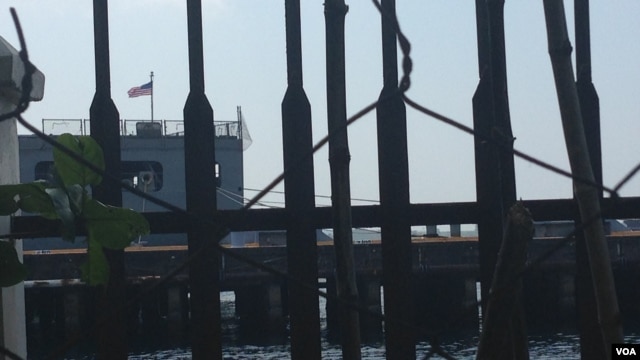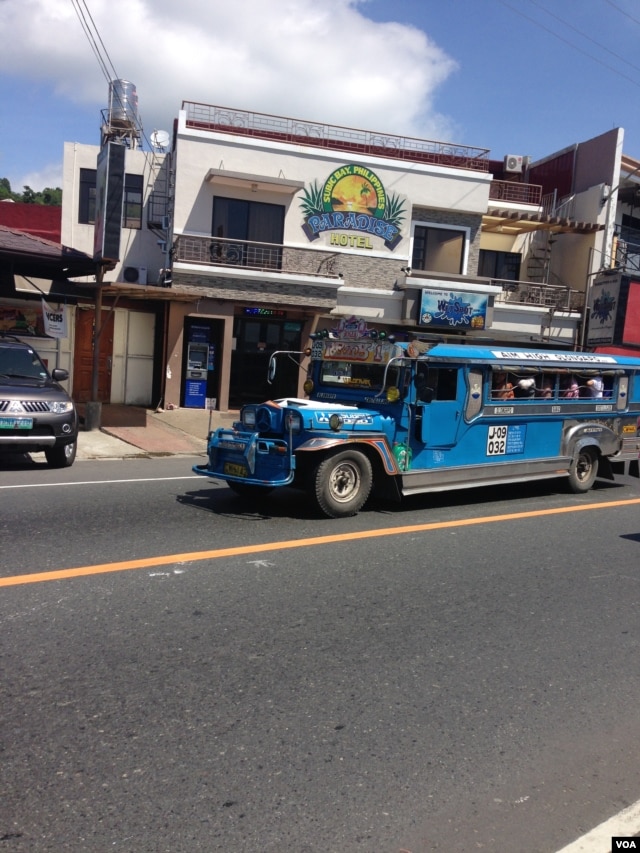From The Asia Foundation (Nov 4):
Bangsamoro Law Deliberations: Déjà Vu All Over Again? (by Anna Tasnim Basman and Steven Rood
The Philippine Congress resumed session this week, and is potentially in its last stretch in deliberating on legislation that would establish the new Bangsamoro Government. In a recent pronouncement, both houses of Congress declared a
self-imposed deadline of Dec.16, 2015, for the passage of the law – two months before the campaign period officially begins for the May 2016
synchronized nationwide elections.
Meanwhile, the Moro Islamic Liberation Front (MILF) has set
three possible scenarios that have to be taken into account as all stakeholders try to preserve the gains of the peace process: a good Bangsamoro Basic Law (BBL), a bad BBL (“good” or “bad” being judged with reference to adherence to the May 2014
Comprehensive Agreement on the Bangsamoro – CAB), or no law at all.
The current situation can be seen as a possible throwback to the experiences of an earlier Congress in 2000 and 2001 as they passed
RA 9054, an amended act for the Autonomous Region in Muslim Mindanao (ARMM) amid objections from the Moro National Liberation Front (MNLF) that the bill did not fulfill the 1996 Final Peace Agreement that the MNLF signed with the government.
On July 2000, the 11th Congress began discussing
proposed bills that would supplant the original Organic Law – House Bill 7883 and Senate Bill 2129 – both bills allegedly drafted by the government without the participation of the MNLF. Three months later, the
jueteng (illegal gambling) furor and eventually the subsequent
impeachment trial against then President Estrada snatched the attention of the Congress away from the Bangsamoro bills.
The senators and congressmen who were members of the bicameral conference deliberating the bill “
had no energy left” after lengthy discussions on President Estrada’s case. Many
advocates decried the “unilateral” process on the part of the government, and lamented a lack of provisions that the bill needed to contain in order to comply with the existing peace agreement between the government and the MNLF.
In December 2000 and January 2001, the MNLF
sent a letter to the Senate and House citing the reasons for their objection to the substitute bills. Among these were the alleged absence of formal consultation with the MNLF regarding the provisions of the bills and the non-compliance of the bills to the 1996 Final Peace Agreement.
On Jan. 23, 2001, less than seven days before the Congressional recess, the Bicameral Conference Committee working on RA 9054 agreed to form technical committees (five members from the Senate and six from the lower house) from both houses of Congress to consolidate the amendments done in the Senate bill and the objections raised by the MNLF. However, the deliberations were overtaken by the euphoria of
EDSA II and the ascension into office of a new president, Gloria Macapagal-Arroyo, on Jan. 20, 2001. Amid the objections and the hype, RA 9054 was
passed into law without the president’s signature on March 2001. (In the Philippines, if the president does not veto a bill it becomes law even if not signed.) The MNLF
objected to the passage of RA 9054 and referred to it as the government’s “arbitrary and unilateral act, without consulting the parties concerned like the OIC and the MNLF.”
After the ratification of a law deemed not compliant with the agreement, both negotiating parties struggled to stay the course of the agreed roadmap. The MNLF had
internal disagreements, as the Executive Council of 15 tried to proclaim MNLF Founding Chair Nur Misuari as “Chair Emeritus” but he declined to be kicked upstairs. The government went ahead with the
plebiscite in August 2001 to ratify the new law (in the course of which Marawi City and the province of Basilan were added to the existing ARMM), but some of Misuari’s followers reacted violently to the events. Misuari
fled to Malaysia where he was detained, later handed over to Philippine authorities, and eventually (in 2009)
acquitted of charges related to the incidents.
Meanwhile, a MNLF member, Parouk Hussein, was elected governor of the new ARMM in November 2001. However, disputes about the 1996 Final Peace Agreement and the ARMM
continue to this day.
The current Congress is now in a better position to enact a “good” BBL due to the fact that the draft submitted to Congress includes agreed upon language from the joint GPH-MILF team of the Bangsamoro Transition Commission (BTC).
However, as in 2000, events outside of Congress have impacted the legislative process. As both Houses of Congress were deliberating the bill, the
Mamasapano incident happened in January 2015, putting a major halt on the process and turning the legislators’ attention away from the bill and toward the investigation of the tragedy, which purportedly involved some MILF commanders. Finally, in May and August 2015, the lower House and the Senate released their substitute bills for the BBL.
The substitute bills, however, were seen to be
not in compliance with the CAB. In parallel with the earlier MNLF reaction to RA9054, the BTC
sent Congress a letter in July citing 28 points that make HB 5811 in conflict with the peace agreement. This led Speaker of the House, Rep. Sonny Belmonte, to meet with the negotiating panels where he explained how hard it would be to change the current House version. A similar dynamic is happening over in the Senate. Many voices have
called for a law that complies with the CAB, but Congress has said that changing the current versions after its approval at the committee level will be a big hurdle to surpass.
As stakeholders push for the peace process to go forward, let’s hope that we can at least pull some lessons from the past that foretells of the need to ratify a BBL that is acceptable to the government and the MILF. Otherwise, history could again be trapped in a vicious cycle of endless struggle in the Bangsamoro.
[Steven Rood is The Asia Foundation’s country representative in the Philippines. He tweets as @StevenRoodPH, and can be reached at steven.rood@asiafoundation.org. Anna Tasnim Basman is assistant program officer in the Philippines, and can be reached at annatasnim.basman@asiafoundation.org. The views and opinions expressed here are those of the authors and not those of The Asia Foundation.]
http://asiafoundation.org/in-asia/2015/11/04/bangsamoro-law-deliberations-deja-vu-all-over-again/


















